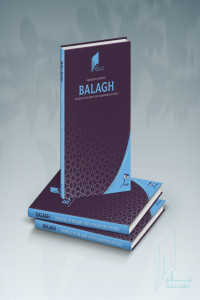The relation of the science of maqasid with creation and composition. Towards activating the purposive point of view in divine creation
The relation of the science of maqasid with creation and composition. Towards activating the purposive point of view in divine creation
the purposes of creation, the purposes of the universe, the importance of purposes, increasing faith the Islamic call.,
___
- ابن عاشور، محمد الطاهر بن محمد بن محمد الطاهر بن عاشور التونسي (ت 1393هـ)، التحرير والتنوير، الدار التونسية للنشر، تونس، 1984هـ.
- الأصفهاني، أبو القاسم الحسين بن محمد المعروف بالراغب الأصفهانى (ت 502هـ)،الذريعة إلى مكارم الشريعة، تحقيق: أستاذنا د. أبو اليزيد أبو زيد العجمي. دار السلام. القاهرة. 1428هـ - 2007م.
- الألباني، أبو عبد الرحمن محمد ناصر الدين، بن الحاج نوح بن نجاتي بن آدم، الأشقودري الألباني (ت 1420هـ)، صحيح الجامع الصغير وزياداته، المكتب الإسلامي، بيروت، الطبعة الثالثة، 1408هـ/ 1988م.
- الآلوسي، شهاب الدين محمود بن عبد الله الحسيني (ت 1270هـ)، روح المعاني في تفسير القرآن العظيم والسبع المثاني، تحقيق: علي عبد الباري عطية. دار الكتب العلمية. بيروت. الطبعة الأولى. 1415هـ.
- البيهقي، أحمد بن الحسين بن علي بن موسى الخُسْرَوْجِردي الخراساني، أبو بكر البيهقي (ت 458هـ)، شعب الإيمان، حققه وراجع نصوصه وخرج أحاديثه الدكتور عبد العلي عبد الحميد حامد، مكتبة الرشد للنشر والتوزيع بالرياض بالتعاون مع الدار السلفية ببومباي بالهند، الطبعة الأولى، 1423هـ - 2003م.
- Başlangıç: 2021
- Yayıncı: Karabük Üniversitesi
تعليم العربية بالصلوات الجهرية منهج مقترح لتفعيل دور المسجد في تعليم العربية (سلطنة بروناي أنموذجا)
The position of Modernist Thought on the sources of knowing god his Attributes and the acts
معوقات النهوض العلمي في العالم الإسلامي من منظور تاريخي
Linguistic interpretation of Ali Mansour Kayali "Critical Analytical Study"
تأثير الطيبي في مباحث علم البيان على السيوطي في كتابه "نواهد الأبكار وشوارد الأفكار
أثر التلقي عند المفسر في تفسير القرآن الكريم
Khaled Abdullah Ali BRIAH, Tuğrul TEZCAN
Mulyono JAMAL, Suraji BADİ’, Syamsuri SYAMSURİ, Khurun'in ZAHRO'
